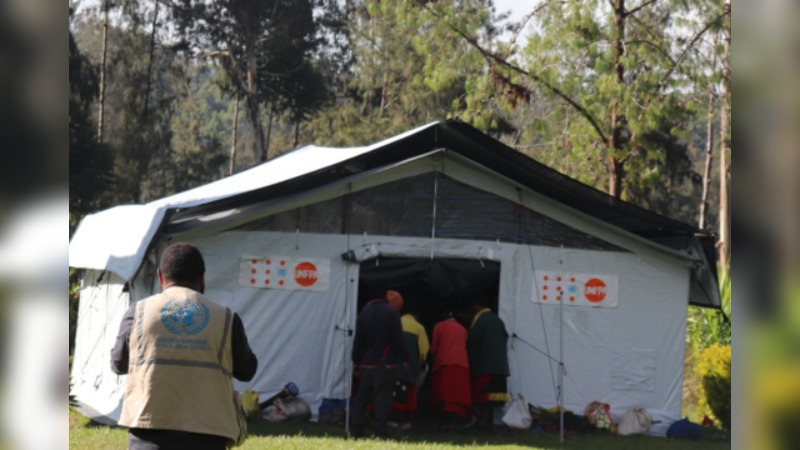A humanitarian frontline worker has been working closely with the United Nation’s Funds for Population Activities (UNFPA), to set up safe spaces for women, girls and children, who have been affected and displaced by the post-election related and tribal warfare in the Enga Province.
It is reported that there are more than 7 tribes that are part of the ongoing tribal conflict in Enga Province; a conflict that has stopped the flow of vehicles along the main highway, caused villages to be burnt to the ground and villagers displaced.
Amidst all of this chaos and destruction, Mr. Franklin Kunjip jumps on a PMV, trying to make his way into the Enga Province, through the neighboring Southern Highlands Province, to set up these safe spaces for displaced women, girls and children.
“I had already set up one safe space tent for displaced women and girls in Laiagam District. The only two tents left to be set up are in Porgera and Kompiam- Ambum Districts. These three districts are still severely affected by the election-related violence in the province.”
35-year-old Franklin has been working closely with the UNFPA in the country since 2018 through their implementing partner, the Catholic Diocese of Mendi.
“Through this partnership, I have worked in the space of gender-based violence and referral pathway programs, supporting survivors to access assistance.”
Although a seasoned humanitarian worker in the Highlands Region, this is the first time for Franklin to work in the Enga Province, with support from UNFPA’s USAID-funded humanitarian response to the election-related violence.
“It is a volatile situation in Enga, and I know my life is always at risk, but someone has to do the work and I have put my hand up to do this work and I will make sure I perform to the best of my ability.”
Franklin shared that there is always a high demand of him as a humanitarian worker in the community, which can be challenging, seeing as there are far too little others like himself in the Province.
“I face this challenge by identifying and understanding their motive and just giving them more time to understand the program and how the outcome can benefit the community in the long run.”
He maintains that despite the challenges, his work is rewarding as he is able to help the vulnerable and those that have been deprived of essential services.

